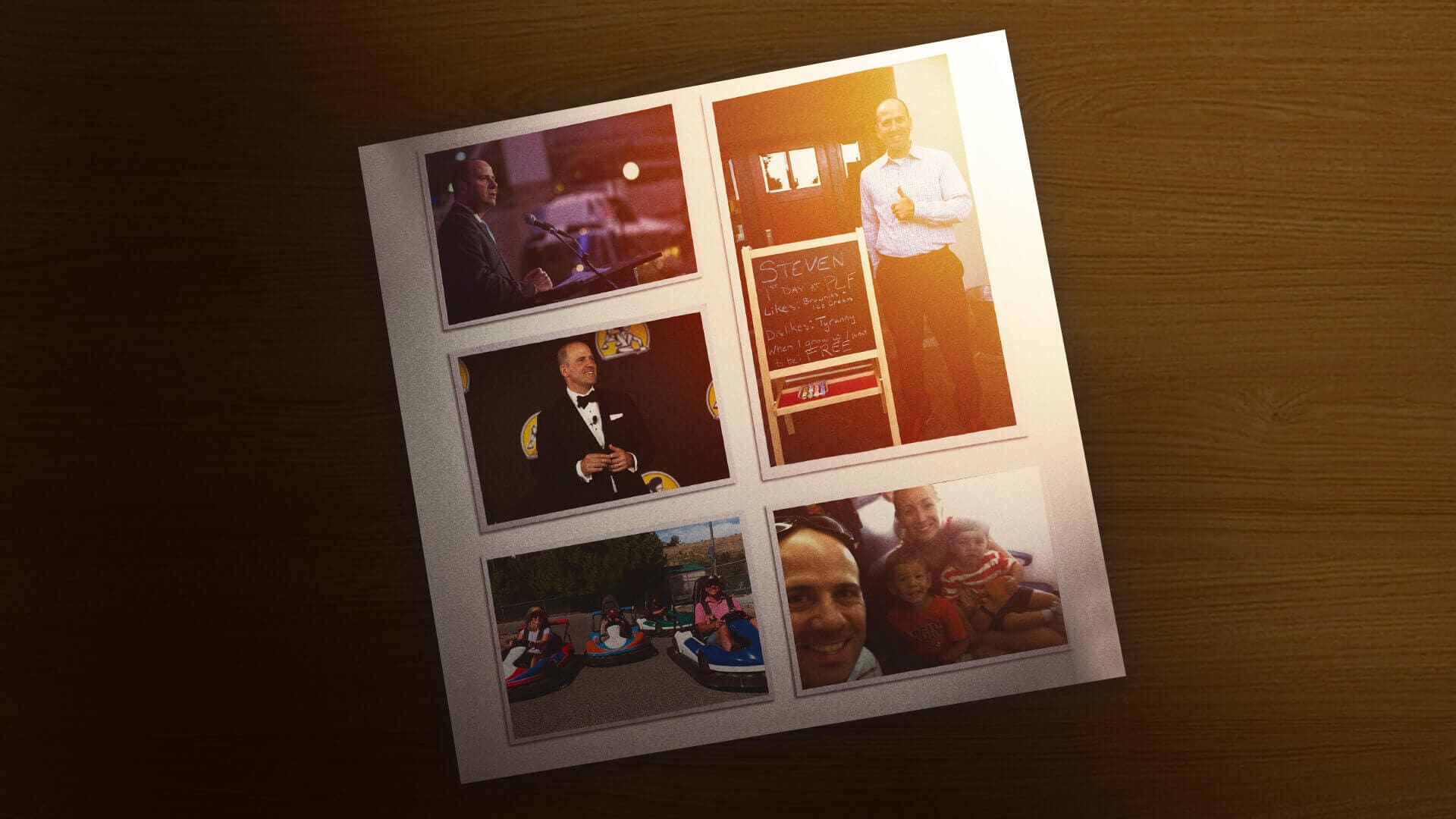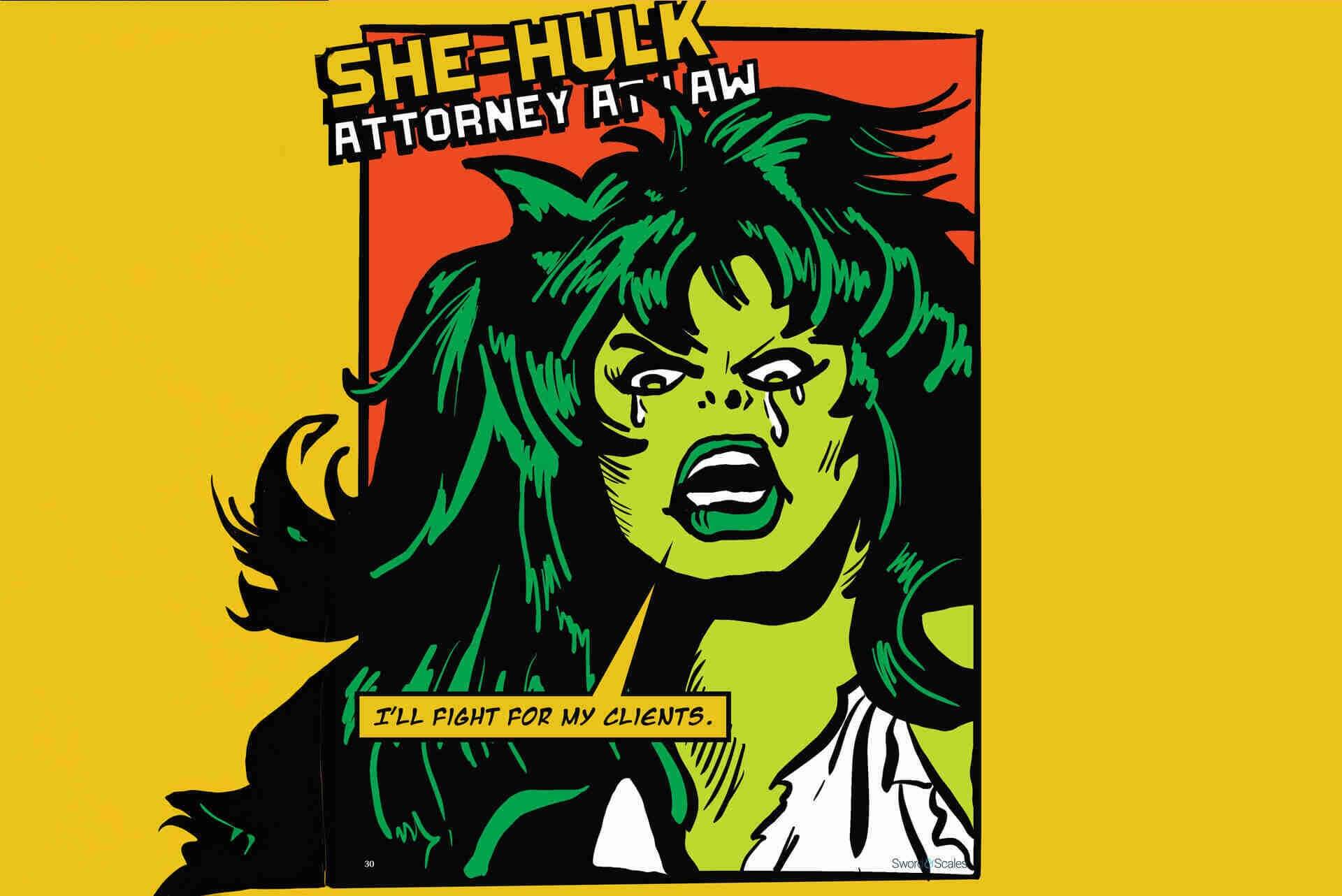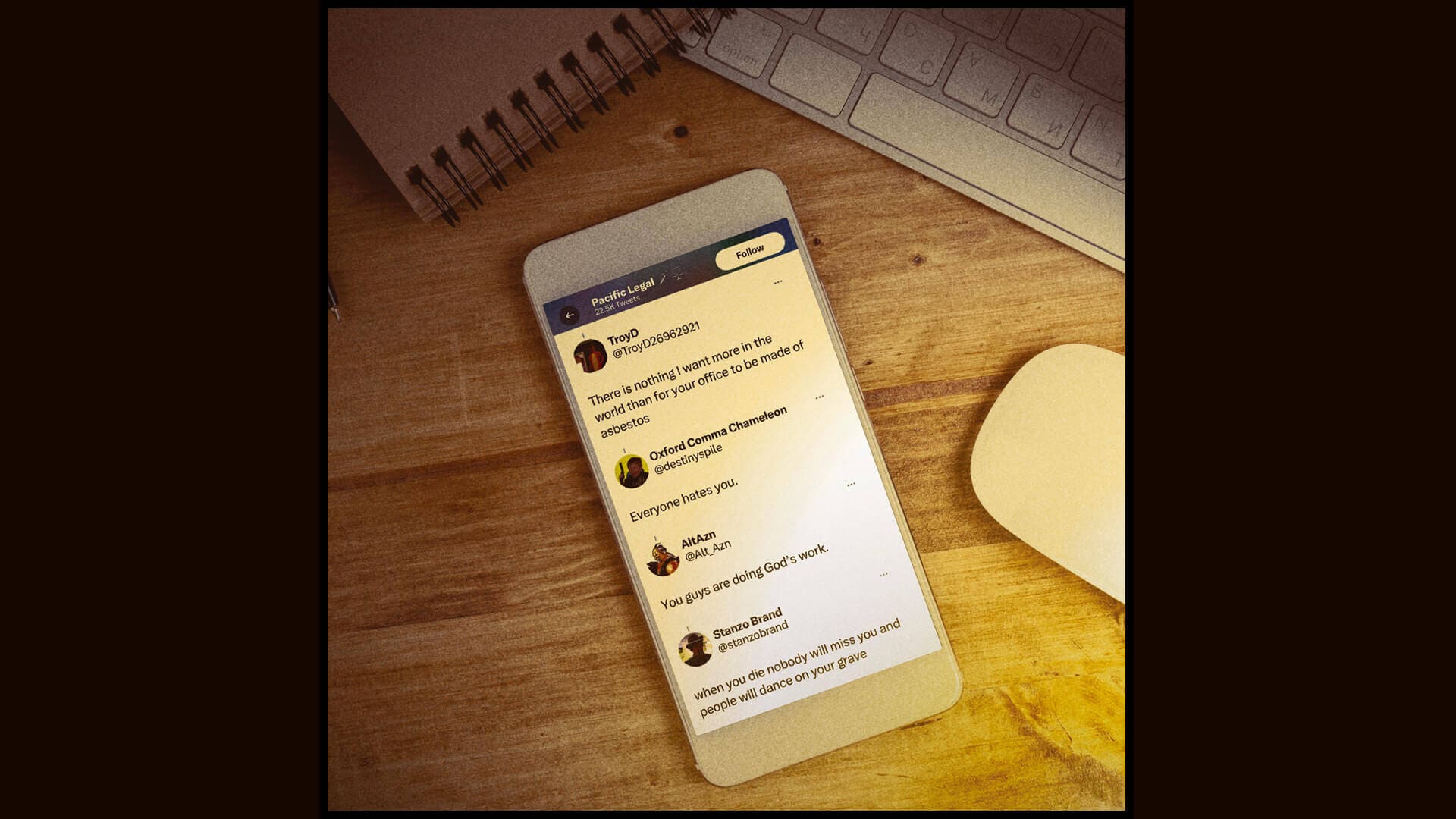ON A YELLOW COUCH in North Carolina. That’s exactly where I was seven years ago when my life changed forever. I was visiting my in-laws for our oldest child’s spring break, and I was doing what every parent does when their kids are napping—I checked my work emails. One was an unsolicited message from a recruiter asking—in true headhunter-speak—if I knew anyone that might be interested in leading a long-established public interest law firm. I was already at a long-established public interest law firm, the Institute for Justice, and had I not been at spring break, I’d have deleted the email straight away. I wasn’t looking for a job and was quite content where I was.
But I happened to mention it to my wife, Lyndsay, who was sitting next to me, chuckling that I’d received another one of those emails, which I routinely sent to the trash. Her response was a surprise—what would it hurt to explore the possibility? So we did explore, and in 2016, I left my job as executive vice president of IJ, packed up our rowhouse on Capitol Hill, and moved along with Lyndsay and our sons, Thomas and Henry, to another capital, Sacramento, to become president of Pacific Legal Foundation. It’s strange to me to think that my entire life’s story has been written in part because I had sleepy kids and an impulse to clean out my inbox. Sometimes the seemingly inconsequential moments have the most profound impact.
I was attracted to PLF, then a 43-year-old law firm, because it had untapped potential—and there’s something exciting about joining an organization that’s still working to determine its mission and identity. You’re putting yourself in a moment where paths diverge, when the choices you make—like the one I made sitting on that couch—will have a reverberating effect. And not only on the organization, but also our nation.
It’s strange to me to think that my entire life’s story has been written in part because I had sleepy kids and an impulse to clean out my inbox.
Since its founding in 1973, PLF has always had a history of success. The organization has always drawn talented, passionate people to the cause of liberty—people who made choices in their own life paths that bring them to jobs at PLF.
But in its old-school days, as PLF advanced liberty, it also spoke with a soft voice. For years we had no dedicated communications department. Sometimes there’s value in quietly getting your work done without caring what the outside world says about you. But the stories we tell about ourselves are also important. After all, if you’re winning Supreme Court cases and no one’s paying attention, how much does it matter?
There’s value in opening your doors and letting people know who you are as an organization. There’s value in letting a larger community be part of what you’re trying to achieve.
That was the impetus behind this year’s 50th Anniversary Gala. The purpose wasn’t to throw a party—although we hope our 600 guests had fun, and I certainly did—but to throw open our archives and show our larger family of supporters and allies who we are.
We held the gala in the National Portrait Gallery in downtown Washington, DC. The museum was established by an act of Congress in 1962 to display portraits of “men and women who have made significant contributions to the history, development, and culture of the people of the United States.” It’s a place I often visit, and it was a fitting place for us to gather, surrounded by the faces of people who helped build America.
We sue the government when it violates Americans’ rights. We take risks. We stand alongside clients who’ve been forgotten by others. And we openly claim our identity as unapologetic freedom-fighters.
As I stood on stage in the museum’s magnificent atrium, looking out at the seated guests, I recognized only a fraction of the faces. But everyone in that room had a connection to PLF. Some had donated money so that PLF can represent our clients for free; some were attorneys at other firms who’d supported PLF cases; and some were clients who’d been in the trenches with PLF attorneys.
In my opening remarks, I reminded the room that PLF started in 1973 with just three staffers in a borrowed office in Sacramento. Fifty years later, with more than 100 staffers working across the country, our firm is a national force.
This term we litigated three of the roughly 60 cases the Supreme Court heard. And—as I hope you’ve heard by now—the best part is we won all three. That might be unprecedented in the history of public interest law.
In Wilkins v. United States, the Court leveled the playing field for property owners suing the government. Our client, blacksmith Wil Wilkins, sent us a touching handwritten letter he received from a high school student after the decision. “I am overjoyed that there are still people fighting for our individual rights as citizens!” the student wrote.
Just before this magazine went to print, mere minutes apart, the Supreme Court announced two more victories for PLF, both unanimous.
In Tyler v. Hennepin County, the Court ruled that home equity theft is unconstitutional. The government cannot take more than it is owed when settling tax debt. Mother Jones—which doesn’t often praise PLF’s property rights work—called it “a true unicorn of a case” because the decision “made just about everyone happy for once.”
And in Sackett v. EPA, a case PLF has been litigating since 2008, the Court put significant limits on Clean Water Act enforcement, establishing that the EPA and Army Corps of Engineers cannot exert regulatory control over semi-soggy parcels of land like the Sacketts’. It’s already being hailed as a landmark case. The Wall Street Journal editorial board correctly called the Sacketts’ victory “a triumph for the liberty of every American.”
At 50 years old, fresh off the biggest year in PLF history, our organization is ever more confident in who we are. We sue the government when it violates Americans’ rights. We take risks. We stand alongside clients who’ve been forgotten by others. And we openly claim our identity as unapologetic freedom-fighters.
Here’s to PLF celebrating 50 years of being bold.







